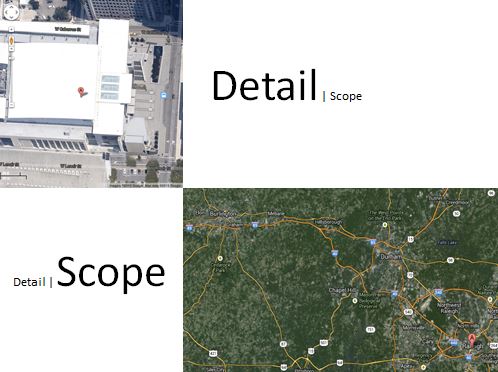What happens when you ask three scholars to explore learning spaces from their unique individual and institutional perspectives? Audience members are challenged to reconsider their understandings of physical, program-level, and online learning spaces, along with their expectations for conference plenaries.
The Friday, October 4, 2013, Plenary at ISSOTL 2013 featured TED-style talks by Thomas Horejes (Gallaudet University), anthony lising antonio (Stanford University), and Siân Bayne (University of Edinburgh). More information about the speakers and their talks is provided below the video.
Visual Deaf Space Classroom Ecology: Lessons in Learning from Gallaudet University
Classrooms at Gallaudet University are designed to optimize visual-spatial learning strategies. Within this evolving context, the acute visual-spatial aptitudes that many deaf students experience stand to help non-deaf students better cultivate the skills and knowledge necessary to thrive in our highly visual world. Creating a space of a “sensory commons,” Deaf Space classroom ecology is designed to maximize classroom’s sense of community and engagement. In this keynote, I share the “sensory commons” that exists at Gallaudet, in our classrooms and other spaces that have visual engagement front and center. Discussing the untapped knowledge about visual-spatial intelligence become lessons learned from Gallaudet as a contribution to SoTL as a whole.
Thomas Horejes is assistant professor of Sociology at Gallaudet University, the world’s only liberal-arts college with a mission that incorporates bilingualism (English & American Sign Language) for the deaf and hard-of-hearing students in higher education. Dr. Horejes studies the ways University faculty facilitate knowledge in linguistically diverse, multi-modal, and visually-focused learning environments that have implications for all university students, hearing or deaf. Click here to learn more about Dr. Horejes.
The New Voc-Ed: Teaching Life as a Vocation
In this short talk, I entertain the notion that higher education at its core should be vocational education — a vocational education that is centrally concerned with students’ pursuit of knowledge pertaining to the question Tolstoy called, “the only question important for us: What shall we do and how shall we live?“ The New Voc-Ed, then, is not about teaching the manual skills and trades to students we have classified as intellectually incapable of the mental trades. It is precisely about teaching students the skills and knowledge they need to seek their life’s work – their vocation – work that is equally about what we do as well as how we live. I will explore what such an emphasis means for teaching and learning across the university.
anthony lising antonio is Associate Professor of Education and Associate Director of the Stanford Institute for Higher Education Research at Stanford University. antonio’s research focuses on stratification and postsecondary access, racial diversity and its impact on students and institutions, student friendship networks, and student development. At Stanford he also serves as the Director of Asian American Studies and is a faculty-in-residence the Education and Society Theme House. His latest book is Assessment For Excellence: The Philosophy And Practice Of Assessment And Evaluation In Higher Education (2012), with Alexander W. Astin. Learn more about Dr. antonio at http://www.stanford.edu/~aantonio/.
Digital essays: academic writing at the edge
The study and production of text is a defining academic activity, yet the way in which texts are shaped and shared in internet spaces presents an intriguing set of challenges to teachers and learners. Pedagogic work with the new generation of web artefacts requires us to work within a textual domain which is unstable, multilinear, driven by a visual logic and informed by authorship practices which are multimodal, public and sometimes collective. How can we critically approach these new writing spaces, as learners, teachers and scholars?
Siân Bayne is a Senior Lecturer in the School of Education at the University of Edinburgh, and Director of Studies on the Edinburgh MSc in Digital Education. Her research interests revolve around educational change as we become more and more enmeshed with the digital. Dr. Bayne’s current particular interests are around posthumanism and online education, the geographies of distance education, museum learning and multimodal academic literacies. She’s currently Associate Dean (digital scholarship) in the College of Humanities and Social Science at Edinburgh. Learn more about Dr. Bayne at http://sianbayne.net/.


